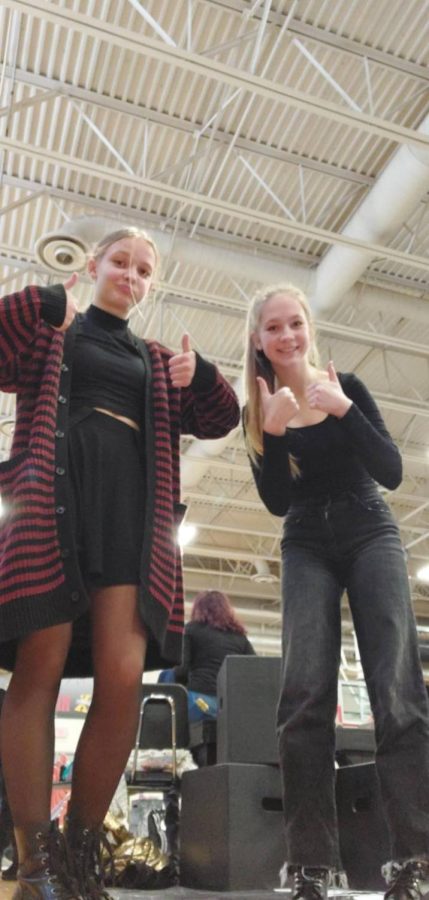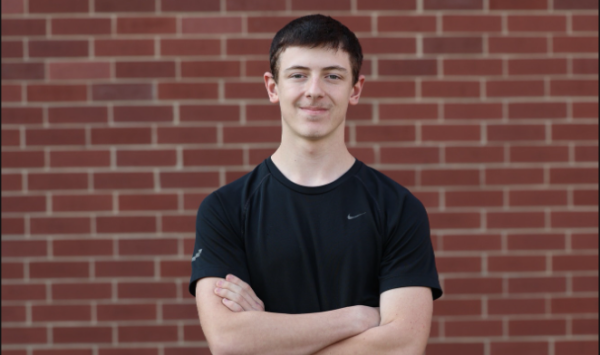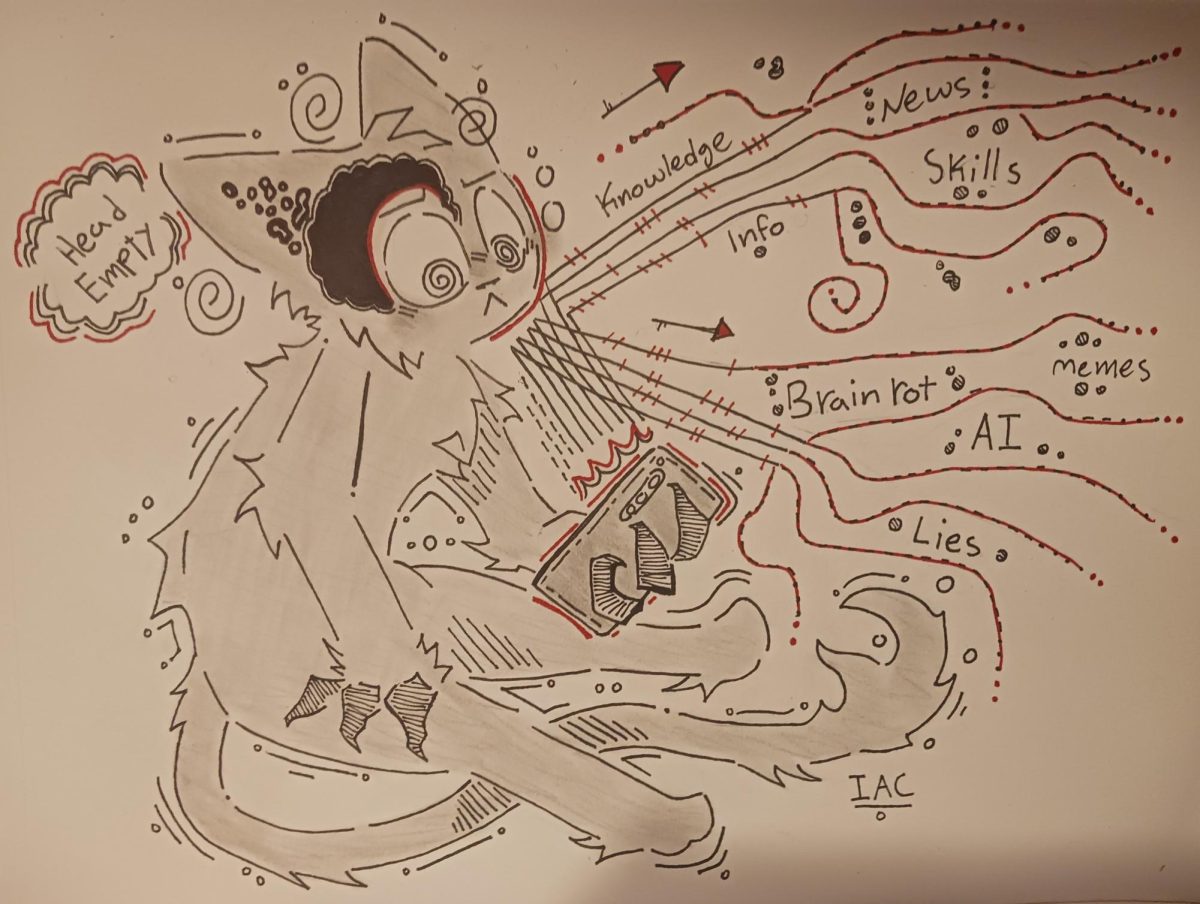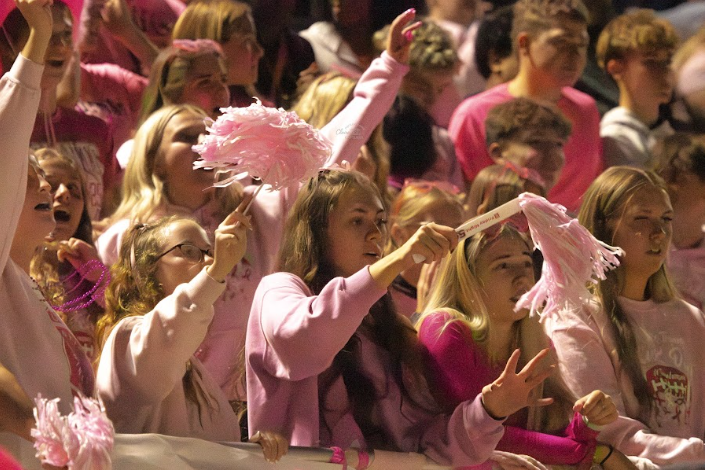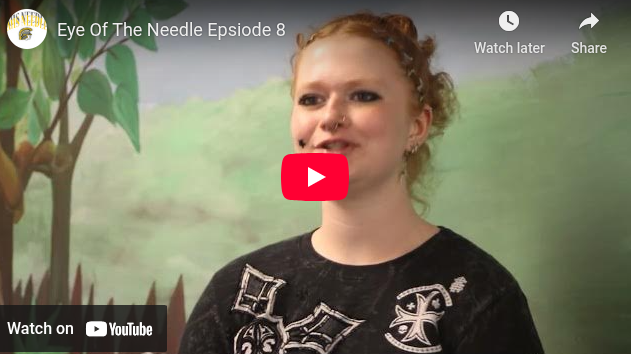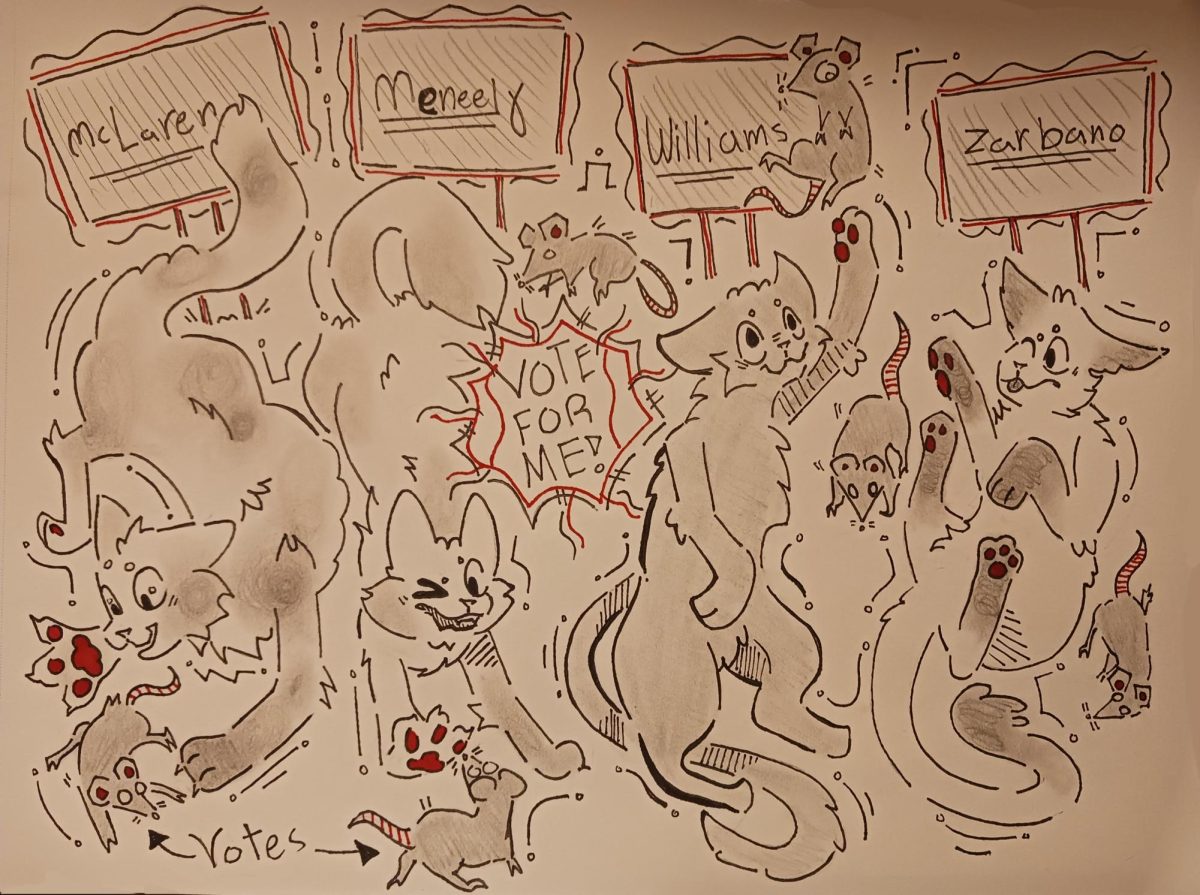Siblings and Stereotypes
Many students at AHS have a certain role when it comes to their sibling dynamic.
SMILE AND POSE- Senior Katie Birge and Sophomore Megan Birge pose for a photo.
February 3, 2023
According to “17 Stereotypes About Birth Order Experts Say Are 100 Percent True,” “When it comes to birth order, there can be some differences between the children based on their position in the family,” said licensed mental health counselor Jaime Kulaga, Ph.D. This means that whatever order you were born into the family, you are different from the other sibling order.
The article states, firstborns are “leaders,” “anxious,” “approval seeking,” “controlling,” and “jealous,” while middle children are “seeking attention,” are “neglected,” have a “hard time finding their place,” are “people-pleasers,” and are “emotional.” Then the youngest child is described as “relaxed,” “coddled,” “outgoing,” and “playful.” Next, are the only children. They have “trouble socializing,” “like attention,” and are “more mature beyond their years.”
Senior Halle Copeland has had her ups and downs with being an only child. She likes not having to get into a lot of arguments. “It is very peaceful,” said Copeland. The disadvantages are very simple, “I get bored very easily.”
Copeland can’t depend on her imaginary siblings to pay for some materials she wants, so, “I pretty much pay for my own stuff.” Although she doesn’t have any siblings to be around, she is glad to have her parents by her side. “It helps to have a good relationship with your parents,” said Copeland.
Getting good grades, working hard, and doing the best that she can is what Copeland’s parents would like from her, as well as “to use my head.” Overall, she said it “depends on the days” when she questions what it would be like to have siblings. “It’s nice to be an only child, but it would be nice to have someone else to talk to,” Copeland said.
Freshman Donovan Hendrington, who is the youngest Hendrington sibling, has a lot to say about being the youngest. Hendrington loves being the youngest sibling because he gets “babied” sometimes, gets out of trouble, and blames situations on his brothers. Even though all that sounds great, it has disadvantages. You get into a lot of arguments, and when you “screw up” you are most likely to get blamed, wrestling can be brutal, getting food last, and showering last “with the cold water”.
Hendrington often gets compared to his older brothers, especially junior Dante Hendrington. This often leads to feeling pressure and expectations to do well in school and in sports. “My parents want to do good in sports, school, be happy, and overall be a good person,” said Hendrington.
One thing that Hendrington thinks is funny, is getting called by his sibling’s name. Getting called by a different name happens often to him. “It doesn’t annoy me, but I don’t even look like Dante.”
Hendrington loves being the youngest and having siblings. “Dante has to take me to all sports events and less gas for me to pay for,” he said. Having siblings, you can learn from them, “they always have advice for me to get better.”
Sophomore Megan Birge is the middle child in her family. She has six siblings total, with two full siblings, one half-sibling, and three step-siblings. “I was very excited to have siblings when I was younger. I liked having the option of someone to talk to and hang out with,” Birge said.
There are some advantages and disadvantages to being the middle child. For example, parents are less likely to pay “attention” to you, so you’re able to get away with stuff easier than the other siblings. But the disadvantages are that you are most likely to get blamed for things even if you didn’t do it because you’re the “troublemaker.”
Birge feels some pressure from being the middle child because she is trying to be better or as good as the older sibling. Plus, she wants to know how to be a good role model for the younger siblings. Along with the pressure, she gets compared the most out of her siblings. “Being the middle sibling is like being stuck in a weird spot where you don’t know what to do and neither do the parents, so they compare [you] to the other siblings,” she said.
As a whole, Birge would rather have siblings than be an only child. She likes that siblings give her a way to always have someone to talk to, it helps with learning to “share”, and be sociable.
Senior Katie Birge is the older sister of Megan, and she has a lot on her plate, with three blood-related siblings and five step-siblings. Birge was very excited to have siblings when she was younger. “I must have been lonely since I was an only child for two years before Megan was born,” said Birge.
Being the oldest comes with its perks and responsibilities. Birge gets her “way with things” at times. She gets to be involved in “adult decisions” or “adult discussions” because she is the oldest sibling. Sometimes she doesn’t get her way all the time because her “responsibilities” outweigh her opinions and feelings. On a daily basis, Birge has to wake her siblings up in the morning and has to drive them to school and back every day. This can cause a lot of stress and pressure on Birge because she needs to be the “role model” since all her siblings look up to her. She feels like sometimes she is not being a good “supporter” in her siblings’ lives, or not looking out for them enough. “The best way I can explain it is, mom anxiety. I worry about my siblings all the time,” said Birge.
All the perks and responsibilities come with the downfalls of being the oldest. “I am the guinea pig sibling. Since I am the oldest, I have to go through everything first,” Birge said. When Birge graduates high school this year, it will be her mom’s first child graduating, another thing that they will need to navigate for the first time.
Although Birge and her siblings fight a lot, she still loves them. “I am close enough with my siblings to know that whatever we may fight about, we still love each other,” said Birge. With that being said, Birge would choose to never be without siblings in any “lifetime”. “I don’t know what I would do without them, they are built-in best friends,” she said.
Although some people may feel trapped by their stereotypes, not every person does. Some middle children act like the oldest child, and some older children act like the youngest. It’s pretty safe to say that every sibling brings their own personality with them when it comes to family roles.

